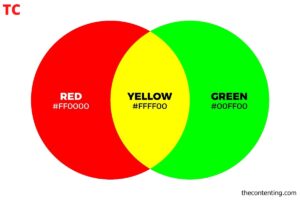
In the dynamic realm of artificial intelligence, a captivating trend is emerging AI perfumes. This innovative approach to fragrance creation is driven by algorithms that analyze extensive datasets on fragrance compositions, customer preferences, and market trends to generate unique and personalized scent combinations. This article explores the groundbreaking developments in AI perfumery and their connection to the rising Sensory AI meta trend.
What is an AI Perfume?
AI Perfume merges artificial intelligence with fragrance creation. Using advanced algorithms and machine learning, it analyzes vast datasets of scents, consumer preferences, and trends to craft unique and personalized fragrances. This innovative approach redefines the traditional art of perfume making, offering a futuristic and individualized olfactory experience. Embrace the scent revolution with AI Perfume – where technology meets personal expression in every drop.
Algorithmic Perfumery:
EveryHuman, a startup at the forefront of this aromatic revolution, offers a service known as “algorithmic perfumery.” The premise is simple yet revolutionary: users engage with the AI by answering a series of questions, enabling the algorithm to delve into their preferences and characteristics. The AI then processes this information to craft a personalized perfume tailored to the individual’s unique profile.
This departure from traditional perfumery, which relies on the expertise of human perfumers, marks a significant shift in the way we approach fragrance creation. EveryHuman’s algorithmic approach not only considers established fragrance compositions but also incorporates individual preferences, resulting in a personalized olfactory experience that caters to the unique tastes of each user.
Google’s Ambitious Dive into Digitizing Smell
The tech giant Google has also joined the olfactory exploration with its Cloud team working on “digitizing smell” using AI. The olfactory world is vast, comprising around 40 billion molecules, yet only a fraction 100 million molecules have been identified to date. Google’s ambitious AI model aims to sift through this olfactory treasure trove, analyzing massive amounts of data to identify currently unknown scents and potentially revolutionize the perfume industry.
A Meta Trend on the Rise
The concept of AI perfumes falls under the broader umbrella of the Sensory AI meta trend. Over the past 24 months, the search volume for “sensory AI” has witnessed an astonishing growth of 2400%. Sensory AI refers to artificial intelligence systems that can learn and process information through various sensory inputs, including smell, hearing, vision, and more.
This meteoric rise in interest highlights the increasing recognition of the potential applications of Sensory AI across various industries. The ability of AI systems to learn and adapt through sensory inputs opens up new dimensions for innovation and creative exploration.
The Fusion of Technology and Artistry
AI perfumes represent a captivating fusion of technology and artistry, offering a glimpse into the future of fragrance creation. The marriage of algorithms and machine learning with the traditionally artistic realm of perfumery introduces a novel dimension to the age-old craft.
By combining established fragrance knowledge with individual preferences, AI perfumes strive to create a harmonious blend that resonates uniquely with each user. This data-driven approach not only enhances the personalization of fragrances but also challenges the boundaries of what is considered possible in the world of scents.
The Potential for Discovery:
Google’s endeavor to digitize smell holds significant promise for the perfume industry and beyond. With a vast number of unidentified molecules contributing to the world of scents, the potential for discovering new and groundbreaking fragrances is substantial. Google’s AI model, with its capability to process massive amounts of data, could unlock previously unexplored olfactory realms.
This digitization of smell not only has implications for perfumery but also extends to fields such as healthcare, environmental monitoring, and food science. The ability to identify and understand a broader range of scents could lead to applications that benefit various aspects of our lives.
Conclusion:
AI perfumes symbolize a fascinating convergence of technology and artistry, offering a sneak peek into the future of fragrance creation. EveryHuman’s algorithmic perfumery and Google’s ambitious olfactory exploration exemplify the innovative spirit propelling the perfume industry into uncharted territories.
As the Sensory AI trend continues to gain momentum, we can expect further developments not only in perfumery but also in other sectors that leverage sensory inputs. The intersection of artificial intelligence and the human sensory experience opens up exciting possibilities for innovation and creativity.
Also read: Humane Unveils Its futuristic ‘Ai Pin’ Wearable





